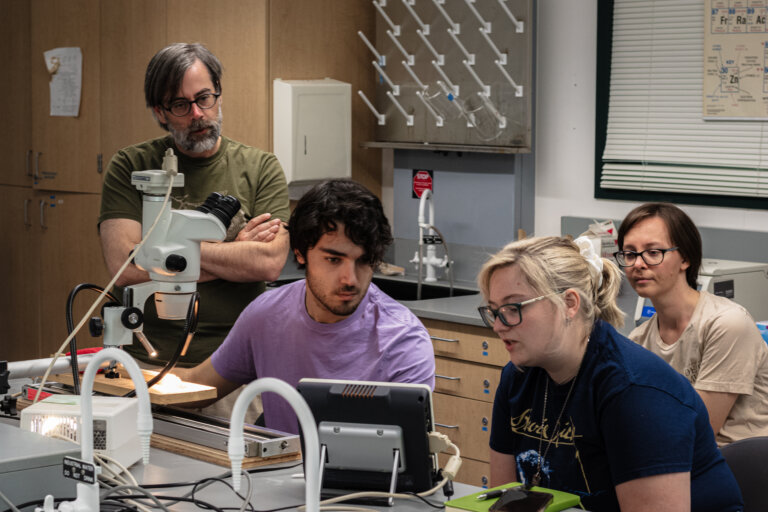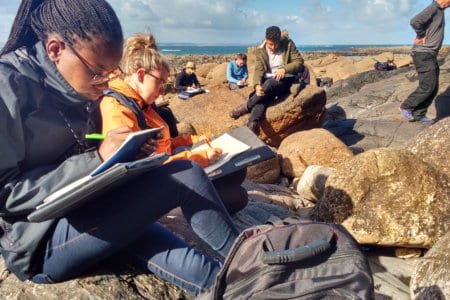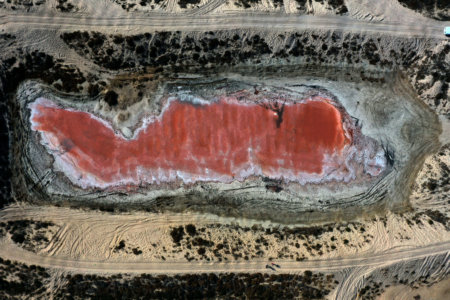
Pursuing a degree in geography is more than just learning to read a map – it involves studying the world and how humans interact with it. You gain insights into practical, social, economic and environmental issues, allowing you to address modern problems such as climate change, biodiversity loss, urban expansion and global inequality.
The degree consists of two focuses: physical and human. Physical geography, a natural science topic and often a Bachelor of Science (BS) degree, encompasses the study of the earth and its natural elements; human geography, a social science topic and most often a Bachelor of Arts (BA) degree, covers how humans interact with the world. Earning either gives you a deeper understanding of a range of complex issues, giving you transferable problem-solving and critical thinking skills beyond the degree.
University of Nevada, Reno

Offering both graduate and undergraduate programs, the Department of Geography engages with students at the highest levels of scholarship. Source: University of Nevada, Reno
Are you interested in both the physical and social sciences? Do you want to solve the world’s most pressing issues: from climate change and biodiversity loss to immigration and global inequality? Geographers play a role in our day-to-day lives in ways you might not think. At the University of Nevada, Reno’s Department of Geography, you’ll get to explore our dynamic and ever-changing world through BS and BA degrees and minors in geography, geotechnologies, and climate change, as well as a certificate in geographic information systems that examine the complex and connected spatial, social, and environmental patterns that shape the lives and landscapes of our world.
The University of Nevada, Reno has faculty researching and teaching at the cutting edge of important societal issues, such as climate change, water resources, land use, sustainable development, migration, spatial data science, environmental justice and more. As an interdisciplinary field, students can choose to tailor their programme to areas of Geography they’re interested in. The BS programme provides a stronger grounding in mathematics and spatial data science, the BA programme provides a traditional liberal arts experience by balancing the arts, humanities, foreign language, social and natural sciences.
From helping refugees cultivate roots through a community garden to an interactive discussion on the complex relationships with land, water and the idea of place, experiential opportunities expose students to more than just theory. Undergraduate research projects make the most of the faculty’s experts and location — you’ll get to work with professors in the foothills of the Sierra Nevada and near Lake Tahoe, going outside, experiencing geography in action and honing in-demand skills such as critical analysis, a global perspective, and an understanding of human-environment dynamics.
Those seeking to combine GIS proficiency with geographic problem-solving and spatial thinking knowledge can opt for the undergraduate Certificate in GIS and Sciences. It includes a capstone project that that will directly benefit the community.
A strong focus on human-environment interaction and sustainability is prevalent across the programmes, with available courses on climate and climate solutions, sustainability, and environmental justice. These tie in with other areas of focus including biogeography, paleoclimatology, water resources, land use planning and political and cultural geography.
University of Connecticut

From the research lab to the court, the University of Connecticut pushes you to your limits to embrace every challenge, whether sustaining energy for the game or the planet. Source: University of Connecticut
The University of Connecticut’s Department of Geography offers a BS and BA degree, with the faculty of geographers engaging in research surrounding modern-day problems. The topics cover urban sprawl, the nature and impact of migration, globalisation of the economy and international trade, the spatial extensiveness of disease, regional development, global climatic change, environmental degradation and restoration, watershed and landscape change, and the analysis and display of spatial data using GIS technology.
Students can also obtain a BS or BA degree in Geographic Information Science, the scientific discipline that conducts spatial analysis to examine economic, environmental, physical, and social phenomena. The BA degree does not require students to take biology, chemistry, physics, or calculus and focuses on classes related to spatial analysis of social issues. The BS degree requires students to take the abovementioned subjects and prepares them for a career in natural science or engineering with geospatial technology.
With their degrees in Geography, BS students can pursue a technologically oriented career as GIS specialists or move on to graduate school to pursue their master’s and PhD degrees. This degree will allow you to teach at the college level or secure higher-ranking public and private positions. BA students can go on to work as urban and regional planners, environmental programme managers, location analysts, and transportation planners.
Indiana University Bloomington

A degree in geography from Indiana University Bloomington will help you address issues of local and global importance. Source: Indiana University
Indiana University Bloomington’s (IU) Department of Geography is a national and international centre of excellence in research and instruction within key subfields of geography. These include cities, development, and justice; climate and environmental change; food and agriculture; GIS and remote sensing; and water resources. The university has a BS, BA, minor and certification available, with concentration areas covering the range of their expertise.
IU’s BS and BA in Geography degrees begin the same, making it easy to adjust your path as your interests develop. The selection of a concentration to develop a deeper understanding of a specific topic or set of issues provides the possibility of internships for credit, which is also strongly encouraged.
The university’s GIS and Remote Sensing certificate can provide another layer of expertise and technical skills to help you secure a job regardless of your major. During the programme, you learn real-world skills in understanding how to analyse social and environmental dynamics critically. The curriculum includes the background, theory, and technical skills for global positioning systems, digital mapping, image analysis (satellite and airborne), geo-visualisation, and spatial modelling in different fields.
Colorado State University

Colorado State University’s Department of Anthropology and Geography focuses on human-environment interactions, globalisation, development, and health and well-being. Source: Colorado State University
At Colorado State University (CSU), you can expect to engage in real-world discoveries and cross-disciplines to find better solutions. Part of the Department of Anthropology and Geography, the BS in Geography programme emphasises human-environment interactions in this period of rapid global change.
The university’s study of diverse relationships between space, place, humans, built and natural environments allows students to interpret human and physical geographic features, patterns and processes. Here, the programme provides diverse courses designed to provide foundational knowledge in the classroom and further engage students in experiential learning in the lab and field
CSU’s BS in Geography programme curriculum concentrates on mountain ecosystems and human-environment interactions, using various research methods to address applied research questions throughout different regions. Students are encouraged to participate in research early, with the university offering faculty-supervised student research projects and independent studies. During these studies, students can expect to learn about climate change implications for society and ecosystems, critical health geographies, geography of virtual worlds and more.
*Some of the institutions featured in this article are commercial partners of Study International










